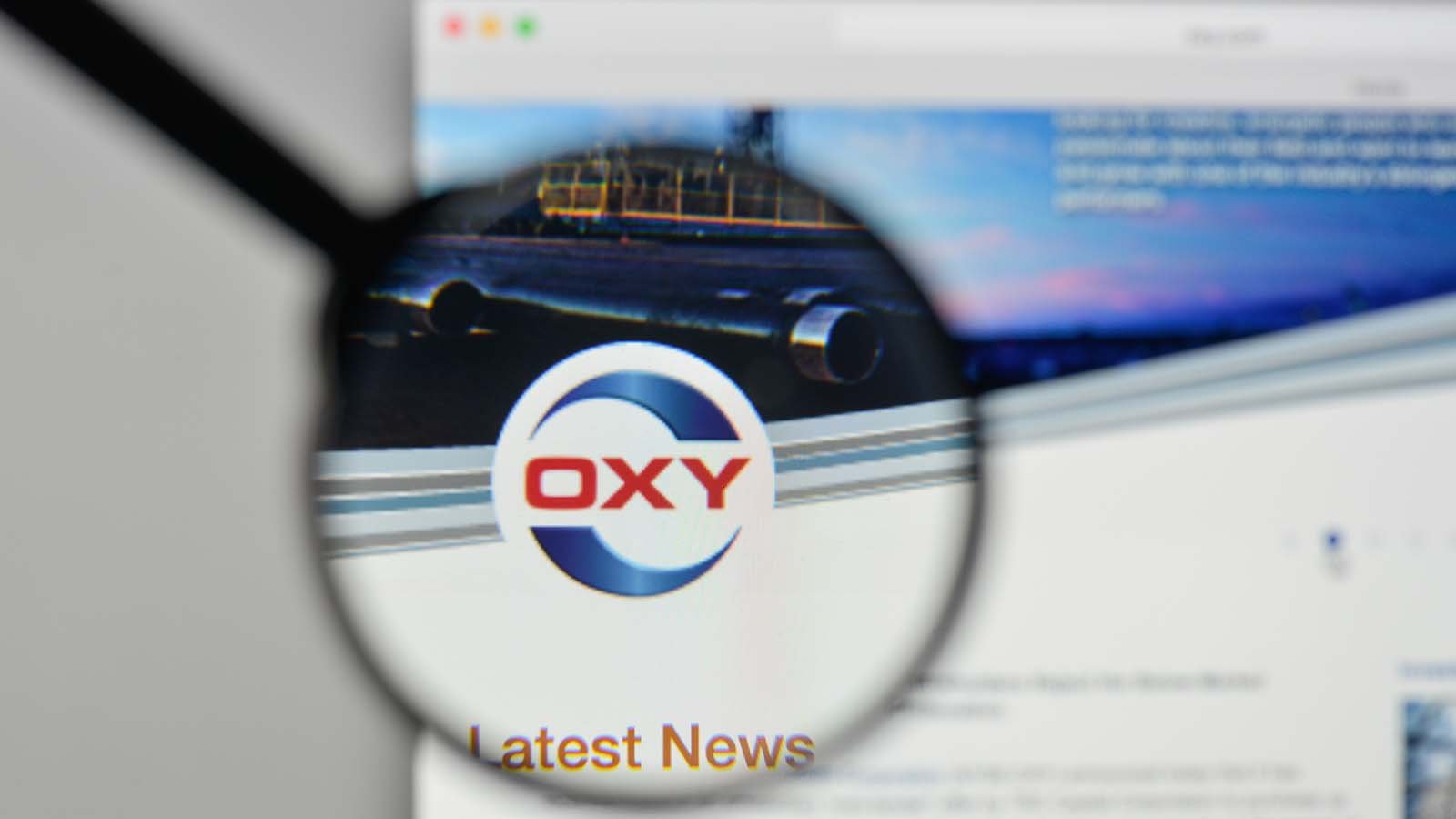Stock market bargain hunters keep seeing Occidental Petroleum (NYSE:OXY) pop up on their radar. As savvy investors know, a company’s stock may deserve to be cheap, and price alone does not make it a good investment. This is the case with OXY stock.

All the boxes to identify a bad deal are checked.
That said, with oil prices very depressed and the global economy being held back by the stubborn novel coronavirus, energy companies will keep appearing for bargain consideration.
Some them are better positioned for today’s circumstances than others. Occidental is in the “others” category, not the “better positioned.”
How Is OXY Stock Performing?
Shares of OXY stock are trading within a rock’s throw of its 52-week low. In fact, it’s been a pretty crummy year for an investor who held on during this time.
Sure, the oil business is cyclical, but Occidental’s performance stands out and not in a good way.
It’s 52-week high was $47.58, though the trip has been mostly down hill. The stock has fallen about 75% percent in 10 months. OXY stock currently is trading around $10.
On Aug. 10, Occidental announced a second-quarter loss of $8.4 billion or $9.12 per share. The company is expected to reveal its Q3 numbers early next month.
Money for Warren Buffett
Prior to the oil-price collapse, Occidental acquired Anadarko Petroleum. The company took on a large amount of debt to make the purchase, which (surprise, surprise) has become quite a burden.
As my colleague Thomas Niel recently wrote in InvestorPlace, Occidental sold $10 billion in preferred stock to Warren Buffett’s Berkshire Hathaway (BRK.A, BRK.B) holding company. Every three months, Occidental must pay Berskhire $200 million.
Buffett has a history of making this kind of deal and, being Warren Buffett, it usually works out quite well for Berkshire. For example, the yield on that preferred stock is 8%.
Most investors put their money in common stock, not preferred stock, and the distinction can mean a significant difference in returns. This difference is not in favor of holders of common stock. The result is buyers of Occidental’s common stock are helping Occidental make its quarterly payments to Buffett. Perhaps a better investment would be to buy shares of Berkshire.
Dumping Assets
With glimpses of doom on the horizon, Occidental laumnched a massive sale of assets to bolster its shaky balance sheet.
The company’s target was to raise $2 billion. Occidental is selling its holdings in the United States (Colorado, Utah and Wyoming) for about $1.3 billion, as well its assets in Colombia for about $825 million, according to a recent report by Forbes.
Thus, it appears the company will meet its $2 billion target (if the deals close as expected in the fourth quarter). This would ease the pressure on Occidental’s finances.
The short-term relief, however, is dwarfed by the long-term ramifications of selling cheap and not having these assets for future development. But, as the saying goes, Occidental lives to fight another day.
Oil has always been a boom-and-bust business. Owners and executives need to have a certain risk-taking temperament to withstand this commodity’s volatility.
The good years can be really good. The good years will camouflage poor decisions and even bad luck. But the pressures that accompany the bad times are brutal. The bright light will burn through the veil and show a company’s true condition and quality of management’s decisions.
I’m confident that Occidental’s executives were convinced that taking on that debt and buying Anadarko was the right move. Hindsight, though, isn’t being kind.
The Bottom Line
Occidental Petroleum is drowning in debt and trying to dig out of the hole. Current circumstances aren’t helping, either. Although the $2 billion sale of valuable assets will be a short-term boost, those assets would have been key to its long-term viability. This is a cost that could prove to be too much.
OXY stock is flirting again with single digits. There’s a lot working against it, including the coronavirus pandemic and its devastating effects on not just the oil industry but the global economy.
The good news is Occidental’s troubles could be solved by a higher price of oil. But the bad news is that’s about the only thing that will do it. Several of the company’s peers are in a much better condition to ride out this storm. And, that’s where investors should be looking.
On the date of publication, Larry Sullivan did not have (either directly or indirectly) any positions in any of the securities mentioned in this article.
Larry Sullivan is a veteran journalist in Florida who has covered banking and finance for several years. He is a former investing editor at U.S. News & World Report in Washington D.C.
